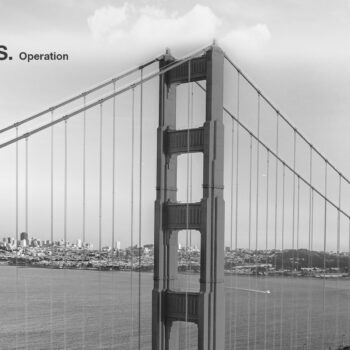70% of companies trying to escape high freight prices – O Estadão
NEWS
70% of companies trying to escape high freight prices – O Estadão
Luis C Vidal contributed with a piece published by O Estadão newspaper addressing the difficulties companies are facing in adapting to the new minimum freight law.
A survey of 27 large companies shows that businesses are mulling the creation of their own fleets or even the purchase of a logistics company.
Uncertainties related to the new minimum freight table have led companies to seek alternatives to escape cost increases. Nearly 70% of these companies are considering different strategies for transporting their goods, including the acquisition of their own fleets, the use of other modes of transport (such as rail and maritime) or even the purchase of a logistics company.
A survey conducted by the strategy and management consultancy, Integration, of 27 large companies whose freight costs are approaching 2 billion BRL annually, shows that many companies still have questions related to the freight law. 40% of these companies believe the rules do not provide sufficient clarity in order to apply them in day-to-day operations. “The matter of return freight, for example, is one topic that still leaves many questions and concerns unanswered,” affirms Luis Vidal, one of the managing partners of the strategy and management consultancy.
This week, Luis Fux, the minister of the Supreme Court of Justic (STF), temporarily suspended the levying of fines by the National Agency of Terrestrial Transport (ANTT) on companies not in compliance with the law. While favorable for the freight forwarding companies, the decision has led to unrest among truck drivers. A new wave of strikes was recently announced via WhatsApp.
This sort of uncertainty creates concerns among the manufacturing sector, which is already facing cost increases. According to the survey conducted by Integration, 55% of companies’ expert costs for transport and logistics to rise by more than 20%, leading many companies to seek alternatives. The most common response is the creation of in-company fleets. Ever since the freight table was created, numerous companies have demonstrated interest in acquiring their own vehicles.
Around 57% of those surveyed affirm that they are taking steps to put together an internal fleet of trucks. This strategy was, for example, adopted by JBS, which has already received the 360 trucks the group purchased in August. Amaggi bought 300 trucks, delivery of which will begin in February.
The US-American company Cargill, one of the global leaders in the area of agrobusiness, has similar plans but is yet to make a final decision. In a statement, the multinational company believes in the “ratification of the unconstitutionality of the freight table”, highlighting that “if this does not happen, or if this decision is extended and ends up rendering our operations in the country more difficult, we are prepared to acquire our own fleet.”
Vehicle manufacturers note that they have received many inquiries, yet few purchases have been concluded. “For now, we’re only receiving requests for information. Many companies are uncertain if these measures will be permanent. Others are still calculating whether having their own fleet would be beneficial,” says João Pimentel, director of Ford Caminhões.
For the market, many specialists view this strategy akin to shooting oneself in the foot. “The option of acquiring one’s own fleet may create more problems for these companies,” says João Moretti, partner of Agrega Tech, a logistics solutions company. What he hei means is that, by purchasing their own trucks, companies end up taking on other costs, such as those for vehicle maintenance and for the personnel needed to operate the vehicles.
But this is not the only possible strategy out there. Many companies have sought to diversify the transport network in their planning by including waterways, railways, and coastal operations (using ships at sea), as is the case for 49% of the companies surveyed by Integration. The idea here is to reduce one’s dependency on road transport, which today represents around 60% of all freight movement in Brazil.
Source: O Estado de S.Paulo – 70% of companies trying to escale high freight prices (in Portuguese).
- On 10 December 2018

